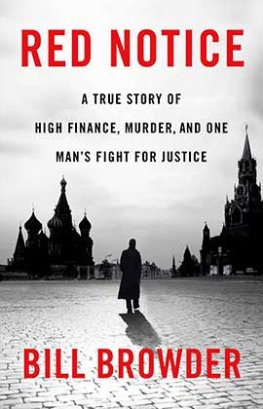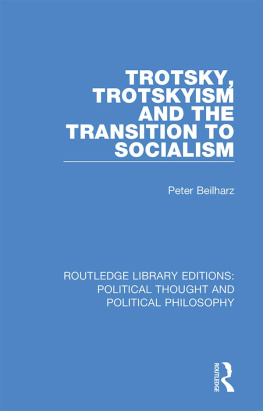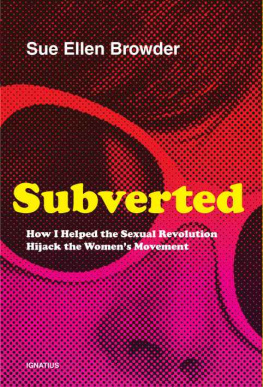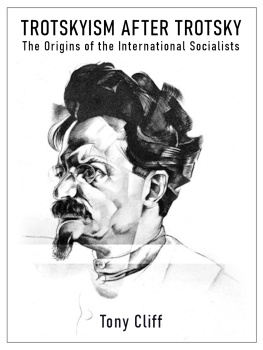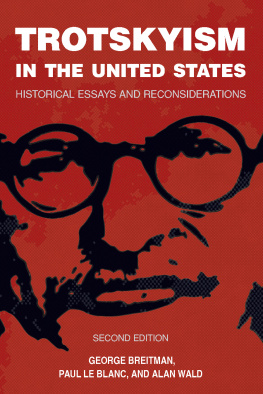Earl Browder - Trotskyism Against World Peace
Here you can read online Earl Browder - Trotskyism Against World Peace full text of the book (entire story) in english for free. Download pdf and epub, get meaning, cover and reviews about this ebook. City: New York City, year: 1937, publisher: Workers Library Publishers, genre: History. Description of the work, (preface) as well as reviews are available. Best literature library LitArk.com created for fans of good reading and offers a wide selection of genres:
Romance novel
Science fiction
Adventure
Detective
Science
History
Home and family
Prose
Art
Politics
Computer
Non-fiction
Religion
Business
Children
Humor
Choose a favorite category and find really read worthwhile books. Enjoy immersion in the world of imagination, feel the emotions of the characters or learn something new for yourself, make an fascinating discovery.

- Book:Trotskyism Against World Peace
- Author:
- Publisher:Workers Library Publishers
- Genre:
- Year:1937
- City:New York City
- Rating:5 / 5
- Favourites:Add to favourites
- Your mark:
- 100
- 1
- 2
- 3
- 4
- 5
Trotskyism Against World Peace: summary, description and annotation
We offer to read an annotation, description, summary or preface (depends on what the author of the book "Trotskyism Against World Peace" wrote himself). If you haven't found the necessary information about the book — write in the comments, we will try to find it.
Trotskyism Against World Peace — read online for free the complete book (whole text) full work
Below is the text of the book, divided by pages. System saving the place of the last page read, allows you to conveniently read the book "Trotskyism Against World Peace" online for free, without having to search again every time where you left off. Put a bookmark, and you can go to the page where you finished reading at any time.
Font size:
Interval:
Bookmark:
Speech by Earl Browder, General Secretary of the Communist Party, at Madison Square Garden, February 5, 1937.
Published by Workers Library Publishers, Inc.
P. O. Box 148, Sta. D, New York City. February, 1937
The world was shocked by the revelations of the trial in Moscow of Piatakov, Radek, and their fifteen co-defendants. Most people are beginning to understand its profound lessons, its historic significance, only as the result of sustained thought, of ever-deeper analysis, of accumulation of tens of thousands of corroborative details which reveal the tentacles of the world-wide plot of fascism and Trotskyism to plunge the whole world into war in 1937.
We have published in full in the Daily Worker the indictment, the presentation of the Prosecutor, Comrade Vyshinsky, and his summary of the evidence, the verdict of the court, as well as copious extracts of the most important testimony introduced. The facts are before us. We also have the evidence of numerous direct observers of the trial, of all political tendencies, as to its procedure and the full freedom of speech of the defendants.
What must be the conclusions of the world of honest men everywhere as to the lessons of this great trial? We of the Communist Party approach this question, not from any narrow partisan viewpoint, but from our desire to reach the broadest possible unity of progressive and democratic mankind to resist the menacing forces of fascism and war. Therefore, in establishing the conclusions to be drawn, I want first of all to make a few quotations, not from Prosecutor Vyshinsky's speech, not from any Communist source, not from any sympathizer or associate of the Communist Partybut on the contrary, from the words of a man who until a few days ago was a member of the Committee for the Defense of Trotsky, an editorial associate of the daily newspaper, the Baltimore Sun, Mr. Mauritz A. Hallgren. In a letter made available to the press, and published in the New Masses and Daily Worker, Mr. Hallgren, having approached the whole question from the viewpoint of defense of Trotsky, makes the following conclusions:
The men now on trial... must know and they do know that they will be put to death. Despite this they do not hesitate to confess their crimes. Why? The only conceivable answer is that they are guilty.... I now see no valid reason for believing that the defendants in the first trial were unfairly dealt with."
That is, an open defender of Trotsky, one who approaches the Piatakov trial with doubts about the Zinoviev trial, comes to the conclusion that all the defendants were fully guilty, fairly tried, and that the essential truth about their plot was established beyond all doubt.
Regarding the absent chief of the plot, Trotsky, his defender Hallgren is forced by the evidence to conclude that the reports of the trial
"... provide us with an abundance of evidence... [that tends] to prove that Trotsky participated in the conspiracy, or that he at least had guilty knowledge of it.... We also have his writings and they tend greatly to strengthen the presumption, if not of actual guilt, at least of moral responsibility."
Then Trotsky's defender concludes that he had been duped, that the real purpose of the committee, into which he had been inveigled, had been from the beginning
"To win liberal support for Trotskyism, that is, for Trotsky's campaign against socialism in the Soviet Union... that the American Committee for the Defense of Leon Trotsky has, perhaps, unwittingly, become an instrument of the Trotskyists for political intervention against the Soviet Union."
With such conclusions having been forced, by the overwhelming weight of evidence, from the very ranks of Trotsky's avowed defenders, we may safely assure this minimum as proved beyond all necessity of further discussion. Anyone who any longer questions these proved conclusions merely proves that, as against his political prejudices which align him with the enemies of the Soviet Union, the weight of evidence means nothing whatsoever, that he is an irreconcilable enemy with whom discussion is impossible.
Given this foundation of established fact and sound conclusion, which must be equally accepted by all honest men of whatever political opinion who are willing to weigh the evidence, we can proceed at once to an examination of those questions which still disturb some honest people who accept these conclusions, or who will inevitably accept them when they are clearly formulated.
Perhaps that question which disturbs the broadest number of people who are without detailed information about the historical background of the Russian labor movement is the Trotskyist charge that the defendants convicted of treason comprised all "Lenin's strongest colleagues and co-workers" in the 1917 Revolution. From this is drawn the theory that the trials are simply the elimination of the "natural leaders" of the revolution by some upstarts who have seized power in the Soviet Union. This vile slander depends for its effect upon lack of information of the American general public, reinforced by the capitalist newspapers' creation of those "reputations". A simple recital of historically established facts is sufficient to shatter this slanderous legend. Every prominent name identified with the treason trials is connected with a long history of struggle against Lenin during his lifetime and against Lenin's Party since his death. Their treason was not something suddenly descended upon them. It was the carrying to its logical conclusion of their long and stubborn struggle against the building of socialism in the Soviet Union.
Lenin's struggle against Trotsky, from 1903 to 1917, was sharp and bitter, and went to the foundation principles of the Bolshevik Party. When Trotsky joined that Party, in August, 1917, he did not abandon his principles which Lenin had fought against and defeated; again and again he tried to overthrow Lenin's leadership, outstandingly in the turning points of the Brest-Litovsk peace treaty, and at the inauguration of the New Economic Policy. After Lenin's death his entire course was one of embittered struggle against the Party policy, always going to greater lengths, until, after years of debate and the overwhelming repudiation of Trotsky by the masses, the renegade was finally exiled.
Zinoviev and Kamenev began a stubborn career of opposition to Lenin in 1917, when they betrayed the October Revolution, with Lenin calling for their expulsion. In 1927, after fighting Trotsky, they suddenly went over to his side, joining him on the issue of opposing the building of socialism in the Soviet Union. Radek and Piatakov fought against Lenin before the revolution, resisting his policy of the self-determination of nations, and were defeated by him. Piatakov was associated with almost every opposition that developed after the revolution, either in an open or concealed form. Radek was removed from any official posts since 1923 when, under Lenin, he was found responsible for disastrous mistakes made in relation to the German events. He was in opposition, and recanted and was re-admitted several times, but never again allowed to hold anything but an appointive post.
The same sort of history attaches to each and every name, not only of those already tried, but of those of the so-called "Right" oppositions who have been implicated by the confessions.
What nonsense, therefore, to assume that because the repeated oppositions of these people brought their names constantly into the capitalist newspapers, they were therefore the "natural leaders" of the Russian peoples. Exactly the contrary. Their connections with the masses had long been broken, and it was precisely because of this that they took the path of treason when they decided not to submit to the unanimous will of the 170,000,000 people united under the Soviets. That in spite of their repeated and crushing defeats, they were still permitted to return to positions of trust and responsibility is proof of one thing onlynamely, that the Communist Party and the Soviet Union made its errors on the side of mercy, clemency, and forgiveness which have ended only when confronted with the final proof and confession of the blackest treachery known to history.
Next pageFont size:
Interval:
Bookmark:
Similar books «Trotskyism Against World Peace»
Look at similar books to Trotskyism Against World Peace. We have selected literature similar in name and meaning in the hope of providing readers with more options to find new, interesting, not yet read works.
Discussion, reviews of the book Trotskyism Against World Peace and just readers' own opinions. Leave your comments, write what you think about the work, its meaning or the main characters. Specify what exactly you liked and what you didn't like, and why you think so.

